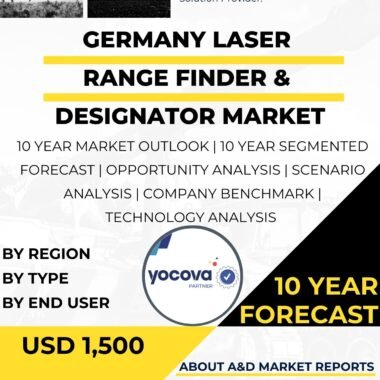Description
The demand for magnesium in Italy?s aerospace and defense industry is steadily increasing as the sector emphasizes lightweight materials, improved fuel efficiency, and enhanced performance across both military and civil platforms. Magnesium is among the lightest structural metals, offering an excellent strength-to-weight ratio, good machinability, and resistance to vibration and thermal stresses, which makes it highly attractive for applications in aircraft, helicopters, spacecraft, and military vehicles. For Italy, a country with a strong presence in European aerospace programs and participation in global defense collaborations, the adoption of magnesium components aligns with broader trends of weight reduction, sustainability, and operational efficiency. As aviation and defense systems evolve to demand higher endurance, improved payload capacities, and reduced fuel consumption, magnesium alloys are gaining prominence as critical materials that enable these advancements. The Italian aerospace industry, with established players involved in commercial aircraft production, military aviation, and satellite programs, is recognizing magnesium?s role in enabling next-generation platforms that balance performance with cost-effectiveness.
Magnesium alloys in Italy are being adopted for a wide array of aerospace and defense applications, ranging from engine components and gearboxes to aircraft frames, rotorcraft housings, and interior structures. The reduction in weight compared to traditional materials such as steel or even aluminum contributes to significant fuel savings and lower carbon emissions, a factor of increasing importance in both commercial aviation and military operations. Magnesium?s ability to dampen vibrations enhances safety and crew comfort in aircraft and helicopters, while its performance under thermal stress makes it suitable for parts exposed to high temperatures. In the defense sector, magnesium alloys are also being employed in armored vehicles and weapon systems, where lighter weight translates into improved mobility, greater maneuverability, and enhanced fuel economy during extended operations. Furthermore, the Italian aerospace supply chain, integrated with European consortia such as Airbus and defense partnerships within NATO, benefits from magnesium?s compatibility with international design and manufacturing standards, ensuring that Italian-produced systems remain competitive in global markets.
A notable driver of magnesium demand in Italy?s aerospace and defense industry is the push toward sustainable and energy-efficient solutions. With international aviation regulations increasingly targeting carbon neutrality and reduced environmental impact, magnesium?s recyclability and contribution to weight reduction help meet these goals. In defense applications, the ability to field lighter yet durable platforms supports strategic mobility and rapid deployment, both crucial for Italy?s commitments to NATO and peacekeeping missions. Research and development efforts are focused on overcoming challenges associated with magnesium, such as susceptibility to corrosion and flammability, through advanced alloying techniques and protective coatings. Italian research institutes and industrial players are collaborating on innovative solutions to enhance magnesium?s performance characteristics, enabling its use in critical and safety-sensitive applications. This growing focus on R&D strengthens Italy?s technological base and supports industrial resilience in the global aerospace and defense supply chain.
The economic and strategic significance of magnesium demand in Italy lies in its role as an enabler of modernization across both civilian and military fleets. Civil aviation companies benefit from reduced operating costs, while the military gains from improved efficiency and performance in diverse operating environments. The defense export sector also stands to gain, as platforms incorporating magnesium-based solutions appeal to international buyers seeking modern, lightweight, and cost-effective equipment. As Italy continues to participate in joint European defense projects and multinational aerospace initiatives, the demand for magnesium is set to expand further, ensuring that the material remains a vital element in the country?s aerospace and defense growth strategy.




